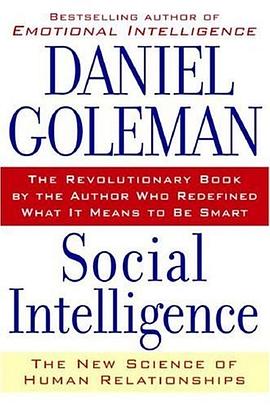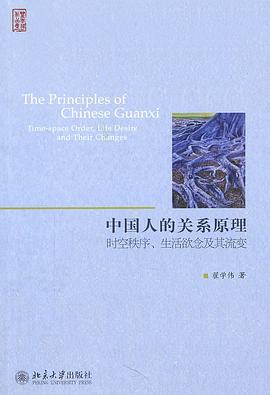
Emotional Intelligence was an international phenomenon, appearing on the New York Times bestseller list for over a year and selling more than five million copies worldwide. Now, once again, Daniel Goleman has written a groundbreaking synthesis of the latest findings in biology and brain science, revealing that we are “wired to connect” and the surprisingly deep impact of our relationships on every aspect of our lives.
Far more than we are consciously aware, our daily encounters with parents, spouses, bosses, and even strangers shape our brains and affect cells throughout our bodies—down to the level of our genes—for good or ill. In Social Intelligence, Daniel Goleman explores an emerging new science with startling implications for our interpersonal world. Its most fundamental discovery: we are designed for sociability, constantly engaged in a “neural ballet” that connects us brain to brain with those around us.
Our reactions to others, and theirs to us, have a far-reaching biological impact, sending out cascades of hormones that regulate everything from our hearts to our immune systems, making good relationships act like vitamins—and bad relationships like poisons. We can “catch” other people’s emotions the way we catch a cold, and the consequences of isolation or relentless social stress can be life-shortening. Goleman explains the surprising accuracy of first impressions, the basis of charisma and emotional power, the complexity of sexual attraction, and how we detect lies. He describes the “dark side” of social intelligence, from narcissism to Machiavellianism and psychopathy. He also reveals our astonishing capacity for “mindsight,” as well as the tragedy of those, like autistic children, whose mindsight is impaired.
Is there a way to raise our children to be happy? What is the basis of a nourishing marriage? How can business leaders and teachers inspire the best in those they lead and teach? How can groups divided by prejudice and hatred come to live together in peace?
The answers to these questions may not be as elusive as we once thought. And Goleman delivers his most heartening news with powerful conviction: we humans have a built-in bias toward empathy, cooperation, and altruism–provided we develop the social intelligence to nurture these capacities in ourselves and others.
From the Trade Paperback edition.
具體描述
讀後感
在本书中我已经看不到在哈佛商业评论精粹译丛《突破领导力》中的那个戈尔曼了。 当初那个根据自身收集的资料,研究不同的领导风格对下属的影响,并且使结果精确到让人拍案叫绝程度的戈尔曼在这本书中业已遗憾地消失。 在看这本书之前我只看过他在哈佛商业评论精粹译丛中的两篇...
評分学院派的作者写得还是比较学究的,各种实验,各种神经回路等等。但正如作者说的那样,就算你对社交的各因素可以分析得分条缕析,也不能让你成为社交高手。 就比如说我非常清楚地认识到自己为何不被某些群体接纳,这种认知也不能帮我融入那群体,尽管我有那意愿...
評分最近读了一些书,每读完一本书,都要在豆瓣看看别人的评论。发现了一个很有趣的现象,几乎每一本书都有大量的批评声,尽管,更多的是赞扬声。面对同样的东西,为什么会有截然不同的评价? 我怀疑这种分歧主要源于不同的知识背景、信息需求,乃至价值观念。用经济学上...
評分最近读了一些书,每读完一本书,都要在豆瓣看看别人的评论。发现了一个很有趣的现象,几乎每一本书都有大量的批评声,尽管,更多的是赞扬声。面对同样的东西,为什么会有截然不同的评价? 我怀疑这种分歧主要源于不同的知识背景、信息需求,乃至价值观念。用经济学上...
評分刚初生没多久的婴儿,只要看到或者听到其他婴儿苦恼的哭泣声,他们也会放声大哭,好像自己也很难过一样。但是他们听到自己的哭声时却没有反应。大约14个月后,婴儿们不仅听到其他婴儿的哭泣自己也会放生大哭,而且还会设法减轻对方的痛苦。而后,随着年龄的成长,遇到同样的情...
用戶評價
講太多科學瞭,枯燥
评分太理論化, 沒耐性看完...
评分not a bad book
评分我感覺好像是把很微不足道,然後,又是非常理所應當的事情拿齣來說,有點莫名其妙
评分這本真的是非常牛的書,值得多讀幾次,居然沒人寫評論啊!超級推薦!
相關圖書
本站所有內容均為互聯網搜索引擎提供的公開搜索信息,本站不存儲任何數據與內容,任何內容與數據均與本站無關,如有需要請聯繫相關搜索引擎包括但不限於百度,google,bing,sogou 等
© 2025 qciss.net All Rights Reserved. 小哈圖書下載中心 版权所有





















